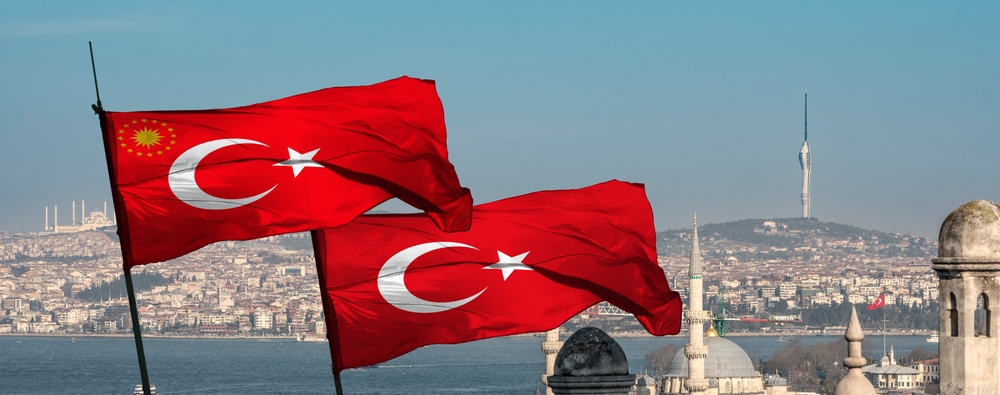
Three versions of Erdogan’s illness as three versions of Turkey’s future
The presidential election campaign in Turkey in 2023 was one of the most vivid and unpredictable in Europe, and can only be compared with the confrontation between Trump and Biden in the United States. Until the end of 2022, popular support for the current odious conservative leader of the country, Recep Erdoğan, seemed unshakable, despite the serious economic crisis and high inflation. The year 2023, however, did not bring solutions to most problems and was marked by a tragic earthquake in the southeast of the country, where support for the incumbent was particularly high. Added to this was the unity in the previously fragmented opposition, which nominated a single candidate, the leader of the Republican People’s Party, Kemal Kılıçdaroğlu. This greatly intensified the struggle, as on average, according to various polls, the two candidates were almost on par with each other, gaining 45% in the first round. Erdoğan’s critics said the president’s rating was exaggerated by government-controlled media and pollsters, but his supporters relied on the strength of his charisma and administrative resources to make a decisive leap to victory. In any case, both sides were very confident of their eventual victory, and May 14 was a very hot day for the outcome of the election.
A high-profile incident involving Recep Erdoğan added tension to the electoral process. On April 26, his interview was abruptly interrupted when he felt unwell live on air. A short time later, the president’s press office announced that the incident was due to an attack of stomach flu and that Erdoğan had been hospitalized but would soon recover. Nevertheless, this has forced him to cancel a series of talks and pre-election trips to regions of the country. The very fact of showing ill health in front of almost all the country has never added to a politician’s confidence before an election. The long pause between the broadcast and the official statement not only created excitement in society and social media, but also gave rise to unofficial versions of what happened and how they affected the events between May 14 and 28. In addition to adding various details and interpretations to the public version, some people believed that Erdoğan’s illness was much more serious and that he might be terminally ill and “not long” left. In contrast, the other half suggested that the illness was merely a public relations game aimed at creating a tragic image gaining public sympathy, and perhaps making accusations against his opponents. Each of these parallel realities is not just a public diagnosis of Erdoğan, but also contains different political scenarios for the future of all of Turkey.

If we talk about the discussion around the official position of the authorities, many began to doubt that simple stomach flu could have caused such a sudden malaise, and the main diagnosis was considered by citizens to be a heart attack. Despite the fact that Vice President of Turkey Fuat Oktay also denied rumors that Erdoğan had suffered a heart attack and reported that the Turkish leader’s condition was very good. However, even many supporters of the current president did not believe this. With such a diagnosis, even a young man under the age of 60 is unlikely to recover quickly, and for the elderly Erdogan, it was practically the end of the election campaign. He had already appeared at several online events and looked fit, but off-line at the opening of Akkuyu Nuclear Power Plant he was again sore and walked, led by President of the Republic of Azerbaijan Ilham Aliyev. Against this background, National Alliance candidate Kemal Kılıçdaroğlu held an emergency meeting of his headquarters on the day of his opponent’s hospitalization, and his supporters were full of optimism ahead of the voting day. However, Turkey is not Europe or the U.S., and Erdogan’s health difficulties, despite which he continues to fight, can be perceived as personal heroism and courage. Ultimately, the 2023 elections were not primarily a battle of personalities, but of Islamist conservative and liberal nationalist ideology. Moreover, loyal voters are unlikely to change their minds for such a minor reason as a candidate’s indisposition. If the official interpretation was at least partially correct, it did not alleviate the uncertainty that prevailed before the election.
But a more radical version was saying that Erdoğan’s illness was not the flu or even a heart attack, but cancer, which caused the embarrassment on live television and will take him to his grave within the next year or two. If this interpretation is true, it threatens the end of an entire era. The Turkish government has been fighting rumors about the president’s terminal illness for a long time, which only leads to a proliferation of such rumors. Undoubtedly, this state of affairs could lead to much more discouragement among the voters and Erdogan’s supporters. However, the Turkish leader won the elections in May. Moreover, even in the worst case, this would not be the end of his regime in the political sense. If he dies while in office, Vice President Fuat Oktay will constitutionally take his place. In such a situation, new elections would be called within a year, in which the most likely candidate would be Erdogan’s son-in-law Selçuk Bayraktar, who gained popularity during his successful work in the Turkish military-industrial complex and was repeatedly described as his father-in-law’s political heir. There is also the belief that even if Erdoğan is defeated after his death, the leadership of the Justice and Development Party will quarrel in the struggle for his legacy, and liberals and nationalists will easily crush their rival in new elections. But such a development is only likely if the cancer is real, not a standard fiction, which is not uncommon in black PR practice around the world.
Finally, a number of both supporters and opponents of Erdoğan see the situation diametrically opposite, and are sure that there is nothing wrong with his health. Moreover, the sudden fainting on TV was completely planned by him and was part of his cunning strategy. It is not about provoking compassion for him at all. On July 15-16, 2016, Erdoğan foiled an attempted military coup against his power that some general staff officers and political opponents of the president, including Erdoğan’s recent ally Fethullah Gülen, were trying to organize. At the time, many believed that the uprising was fictitious and instigated by the Turkish president himself in order to get rid of his opponents and consolidate his power. Many believe that in the run-up to the election, Erdoğan claimed that the cause of his deteriorating health was poisoning by his rivals. Many even believed that he was then able to declare a state of emergency, avoid re-election, and usurp power. There is such experience in the world: for example, in 2004 presidential candidate Viktor Yushchenko claimed that he was poisoned, which boosted his popularity and allowed him to win. This means that such a dangerous game made sense and could bring political dividends. There is no doubt that the variations we have described are only a systematization of rumors and are very tentative in nature. But we must firmly understand that real life often surpasses any fantastic fabrications. Anyway, whatever Ergodan’s strategies were, they succeeded and he won presidential election in Turkey this time.


Average Rating